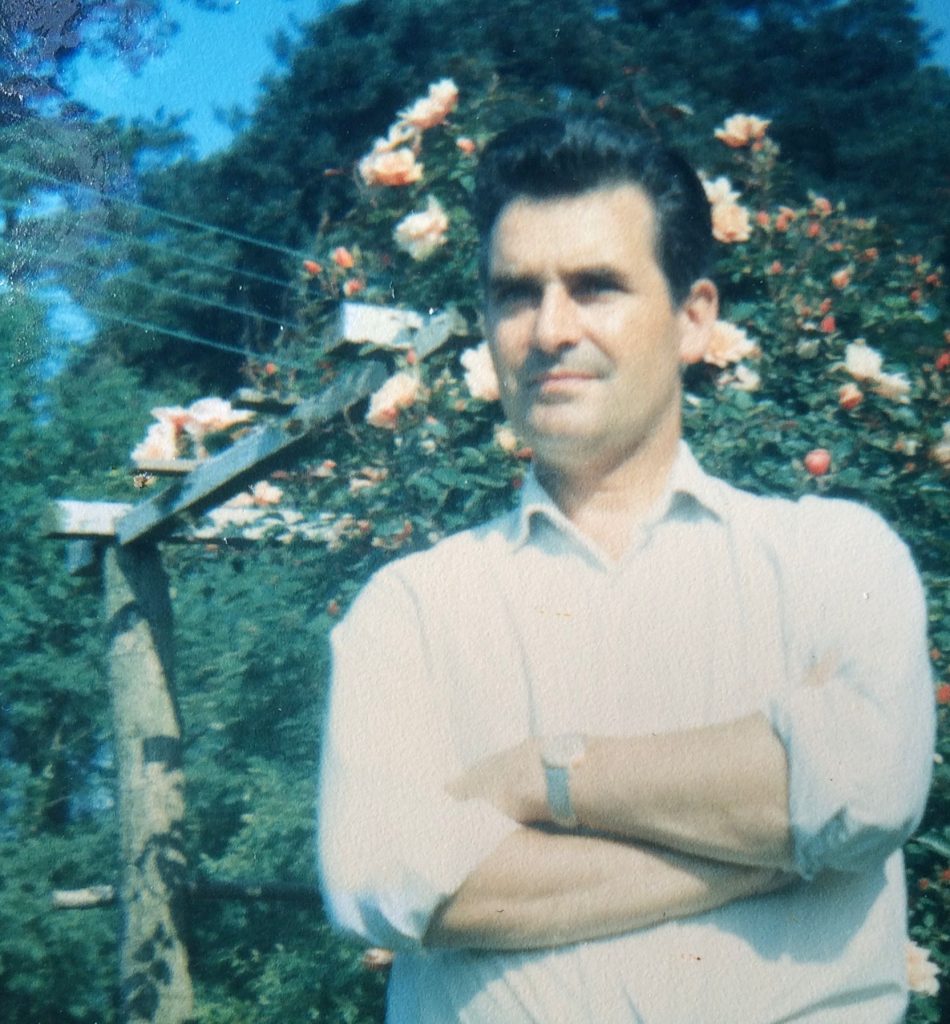
I’m a fan of a good sonnet, as was Seamus Heaney, who differentiated between poetic form and shape:
‘There is a mistaken equivalence being made nowadays in this kind of talk about a return to form. A lot of people mean they are using shapes. I think that a sonnet, for example, isn’t fourteen lines that rhyme. A sonnet is a system of muscles and enjambments and eight and six – it’s got a waist in the middle. It is a form. [In a shaped sonnet] there are indeed fourteen lines and there are indeed rhyme words at the end, but the actual move, or the movement, of the stanza isn’t there. So, I would make a distinction between form, which is an act of living principle, and shape which is discernible on the page but is inaudible and kinetically, muscularly unavailable. Poetry is a muscular response, I feel. You read a Shakespeare sonnet, a beloved Shakespeare sonnet, it’s a dance within yourself.’
I was reminded of Heaney’s distinction between shape and form when I awoke on Friday morning in a hotel overlooking the Irish sea. I was staying in Newcastle, County Down, having spent the previous day working with a group of tremendous Northern Irish primary headteachers. We had had the craic the night before and I was feeling somewhat brittle when I glanced at my mobile to find that my university mate, David Maddock, had sent me images of a set of sonnets I’d sent him. I’d written them, I think, in 1989 (in the accompanying letter I write about Margaret Thatcher being Prime Minister), some four years after my dad had died.
I had misplaced the poems and was delighted that David had found them. I had searched for them occasionally over the years, but had given up hope of ever reading them again. They exemplify, precisely, Heaney’s shape/form demarcation. Here is one which is just shape:
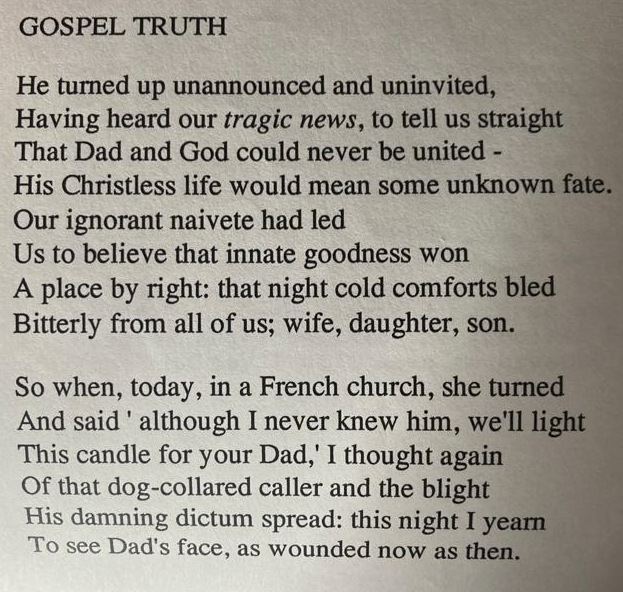
I was just angry at the Methodist preacher. His theological decree prompted my mother to spiral into a breakdown. She had to be sectioned and spent four of the ten weeks dad had left, in Hellingly hospital, the local Victorian psychiatric institution. Whilst the octet rhymes, it is just a shape on the page which conforms to the structure of a sonnet but has none of Heaney’s movement. And it just tells, it doesn’t show.
My sister had a baby in 1988. I like this one for the memory it captures, but, again, is more shape than form, especially in the octet:
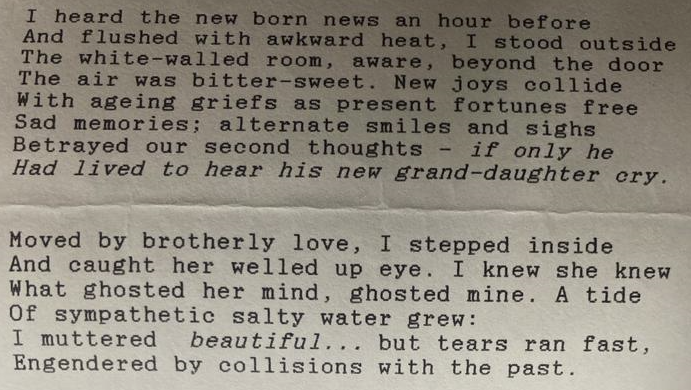
This next sonnet has something more – I like the sense that the garage was a tomb which I had, Howard Carter-like, plundered for its ‘riches’ – but the last line is clumsy as hell:
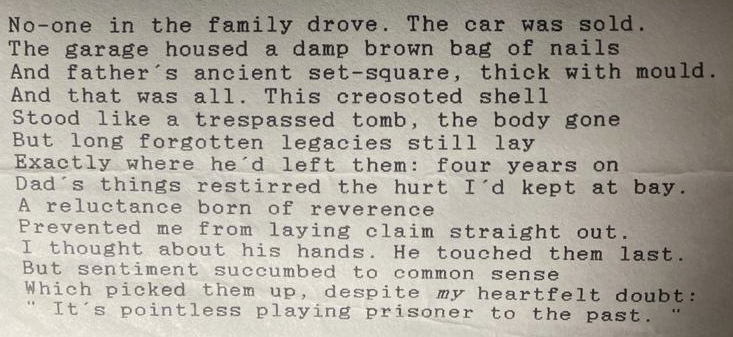
My dad was a postman. He rose at 4.15 am every working day. He would have a sleep before he went back for the afternoon round. As a child I used to lie next to him, and mimic his breathing:
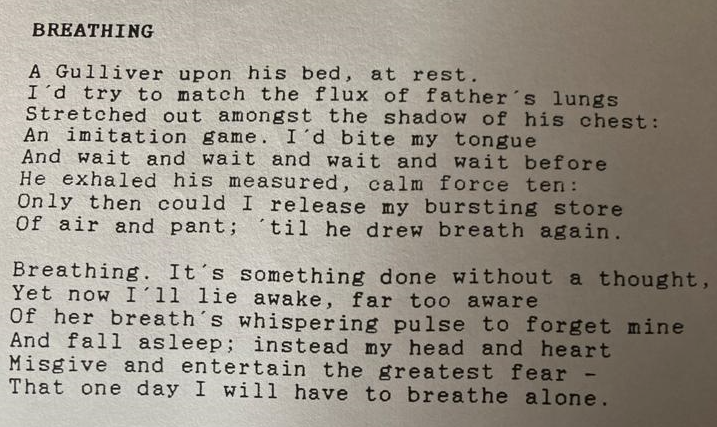
When dad and mother dropped me off at university on 10 October 1984, we had tea in a café. Self-obsessed with the life about to unfurl in front of me, I missed the signs that dad was so poorly. This sonnet has, perhaps, a more discernible sense of form and movement.
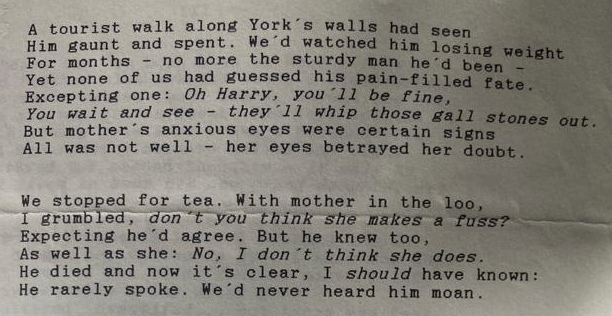
Once he was diagnosed with terminal cancer in November 1984, dad’s health declined rapidly. After Christmas, we decided that I should return to York. He was deeply proud I’d made it to university and he didn’t want his illness to affect my education. I went back to university in the January. I don’t know why I did that now. I’ve done some pretty stupid things in my sixty years, but that is one of the very few I truly regret, a sense of regret caught in this next poem. On one occasion in that January, dosed up with heroin to ease the pain, dad dropped his fruit salad on the floor and proceeded to eat it off the carpet. This sonnet probably works best as a form.
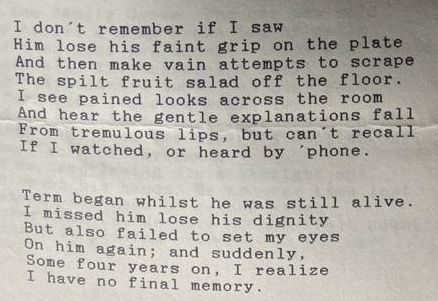
On Tuesday, dad will have been dead 39 years. David sending me the sonnets, being in Northern Ireland when I was reunited with them, Heaney ghosting it all, just seemed right, somehow. They might be mawkish, heavy-handed shapes rather than forms, but they do capture my 25 year-old self’s attempt to make sense of the grief I felt at losing my beloved dad. As my sister said to me recently, ‘the trauma of it feels like yesterday.’


Beautiful Bol x